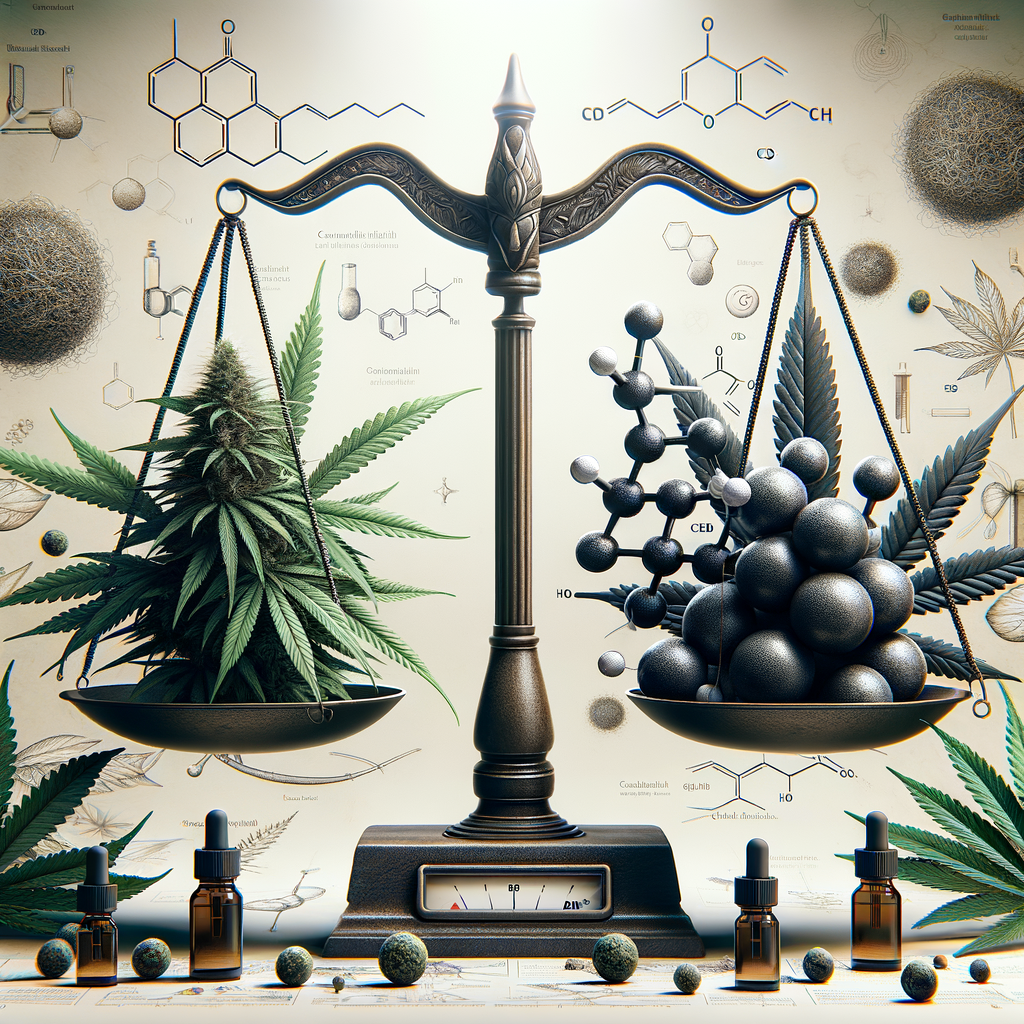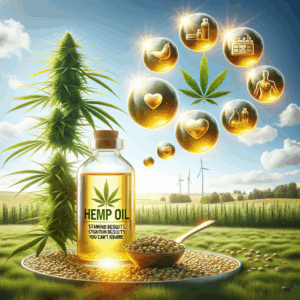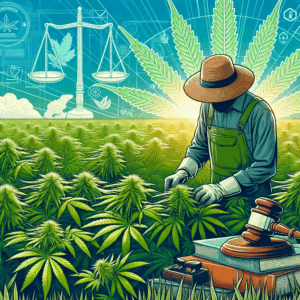
Hemp vs CBD: The Ultimate Guide to Understanding Differences
- Understanding Hemp and CBD: A Fundamental Overview
- What is Hemp?
- What is CBD?
- Key Differences Between Hemp and CBD
- The Legal Landscape
- Benefits of Hemp
- The Benefits of CBD
- How to Choose Between Hemp and CBD Products
- Safety and Side Effects
- The Future of Hemp and CBD
- FAQs
- Conclusion
- References
Understanding Hemp and CBD: A Fundamental Overview
Hemp and CBD are terms that often prompt a flurry of questions. Many people mistakenly believe that the two are identical, but that’s far from the truth. Both hemp and CBD come from the same plant family—Cannabis sativa—but they serve very different purposes. In this guide, we will break down the key differences, uses, benefits, and legal aspects of hemp and CBD to provide a clearer picture.
What is Hemp?
Hemp is a versatile and robust plant that has been cultivated for thousands of years. It belongs to the Cannabis sativa family, which includes both hemp and marijuana. However, hemp is defined primarily by its low THC content, usually less than 0.3%. This low THC level means that hemp does not produce psychoactive effects, making it an ideal agricultural crop.
Hemp has a diverse range of uses. From textiles and paper to building materials and biofuels, its applications seem endless. Beyond materials, hemp seeds, oil, and protein powder provide nutritional benefits. They are rich in essential fatty acids and proteins, making them valuable dietary supplements.
What is CBD?
Cannabidiol, commonly known as CBD, is a compound found in both hemp and marijuana. Unlike THC (the psychoactive component in marijuana), CBD does not produce a “high.” Instead, many users report therapeutic benefits.
CBD interacts with the endocannabinoid system, a network of receptors in our bodies responsible for maintaining balance. This interaction may help manage stress, anxiety, and pain, among other health issues. The wide acceptance of CBD has led to an explosion of products, from oils and tinctures to infused edibles and skincare items.
Key Differences Between Hemp and CBD
Understanding the distinctions between hemp and CBD can be simplified into a few core categories:
| Aspect | Hemp | CBD |
|—————————|—————————————|—————————————|
| Source | Derived from Cannabis sativa | Extracted from both hemp and marijuana|
| THC Content | Less than 0.3% | Varies based on extraction |
| Psychoactive Effects | None | None, unless combined with THC |
| Uses | Textiles, food products, biofuels | Health supplements, skincare |
| Legal Status | Legal in many regions | Legal status varies by jurisdiction |
By breaking these categories down further, you can better understand how each serves a unique role in the market.
The Legal Landscape
Navigating the legalities surrounding hemp and CBD can be tricky. In the United States, the 2018 Farm Bill legalized hemp, classifying it as an agricultural product. This legislation allowed for the widespread cultivation of hemp for a variety of uses, including fiber, seed oil, and the extraction of CBD.
However, the legal status of CBD varies significantly from state to state. In some states, CBD derived from hemp may be legal for recreational or medical use, while in others, it may still be prohibited. Always check local regulations before purchasing or using any CBD products.
Benefits of Hemp
Hemp offers a range of benefits that go beyond its practical uses. Here are a few notable advantages of integrating hemp into your life:
1. Nutritional Value: Hemp seeds are a powerhouse of nutrition, rich in essential fatty acids, protein, and fiber. They are often used in health foods, smoothies, and snack bars.
2. Eco-Friendly: Hemp is a sustainable crop. It grows quickly, requires minimal pesticides, and can improve soil health.
3. Versatility: From clothing to construction, hemp’s applications are many. This plant can replace environmentally damaging materials, making it a vital resource for a sustainable future.
The Benefits of CBD
CBD has gained immense popularity due to its numerous health benefits. Here are some of the most commonly cited advantages:
1. Relief from Anxiety and Stress: Many users report a calming effect, making it easier to manage everyday stressors.
2. Pain Management: CBD’s interactions with the endocannabinoid system may help alleviate chronic pain and reduce inflammation.
3. Improved Sleep: Some individuals use CBD to help with insomnia and other sleep disorders, often reporting better rest.
4. Skin Benefits: CBD’s anti-inflammatory properties make it renowned in skincare products, helping manage conditions like acne and eczema.
How to Choose Between Hemp and CBD Products
Choosing the right product depends on your individual needs. Here’s a straightforward approach:
1. Health Goals: If you’re interested in nutritional supplements, hemp seeds or oil are ideal. For targeted health benefits like pain relief, consider CBD products.
2. Product Types: Hemp comes in various forms like seeds, oils, and textiles. CBD is available in oils, capsules, edibles, and topical creams. Choose your format based on ease of use and lifestyle.
3. Source Quality: Always look for third-party lab-tested products to ensure purity and potency, whether you’re buying hemp or CBD.
Safety and Side Effects
Both hemp and CBD are generally considered safe. However, CBD may cause side effects for some people, including:
– Fatigue
– Diarrhea
– Changes in appetite or weight
Always consult a healthcare provider before starting any new supplement, especially if you take medications or have existing health conditions.
The Future of Hemp and CBD
The outlook for hemp and CBD is promising. As more research uncovers the benefits of both, acceptance is likely to grow. The agricultural industry continues to explore innovative uses for hemp, while scientists study the myriad ways CBD can improve health.
Moreover, consumer awareness about sustainability boosts hemp’s popularity. As individuals become more environmentally conscious, the demand for hemp products will likely increase.
FAQs
1. Can hemp make you high?
– No, hemp contains less than 0.3% THC, which is not enough to produce psychoactive effects.
2. Is CBD legal everywhere?
– Not necessarily. The legal status of CBD varies by state and country. Always check local laws.
3. Are there any side effects to using CBD?
– Some users may experience fatigue, diarrhea, or changes in appetite. Consult a healthcare provider if you’re concerned.
4. What’s the best way to take CBD?
– It depends on personal preference. Options include oils, capsules, edibles, and topical applications.
5. Can you grow hemp at home?
– It depends on local laws. Many places allow home cultivation with specific regulations.
6. Is hemp oil the same as CBD oil?
– No, hemp oil is typically derived from hemp seeds, while CBD oil is extracted from the hemp plant itself.
7. Does CBD show up on drug tests?
– Typically, drug tests look for THC. However, full-spectrum CBD products containing trace amounts of THC may cause a positive result.
8. Is all CBD derived from hemp?
– No, CBD can be extracted from both hemp and marijuana plants.
9. What are the nutritional benefits of hemp seeds?
– Hemp seeds are a rich source of protein, essential fatty acids, and vitamins, beneficial for overall health.
10. Can I use CBD for pets?
– Yes, many pet owners use CBD products for their animals. Always consult a veterinarian before administering any new treatment.
Conclusion
Understanding the differences between hemp and CBD helps you make informed choices. While both play unique roles in health and sustainability, their applications and benefits can vary widely. By exploring these distinctions and staying informed, you can effectively utilize both hemp and CBD to enhance your well-being.
References
1. U.S. Department of Agriculture. (2018). The 2018 Farm Bill.
2. Project CBD. What is CBD?.
3. Healthline. What Are the Benefits of Hemp?.
4. American Psychological Association. How CBD Works.
This comprehensive guide illuminates the important distinctions between hemp and CBD, ensuring that you have the knowledge to navigate this rapidly evolving landscape.

